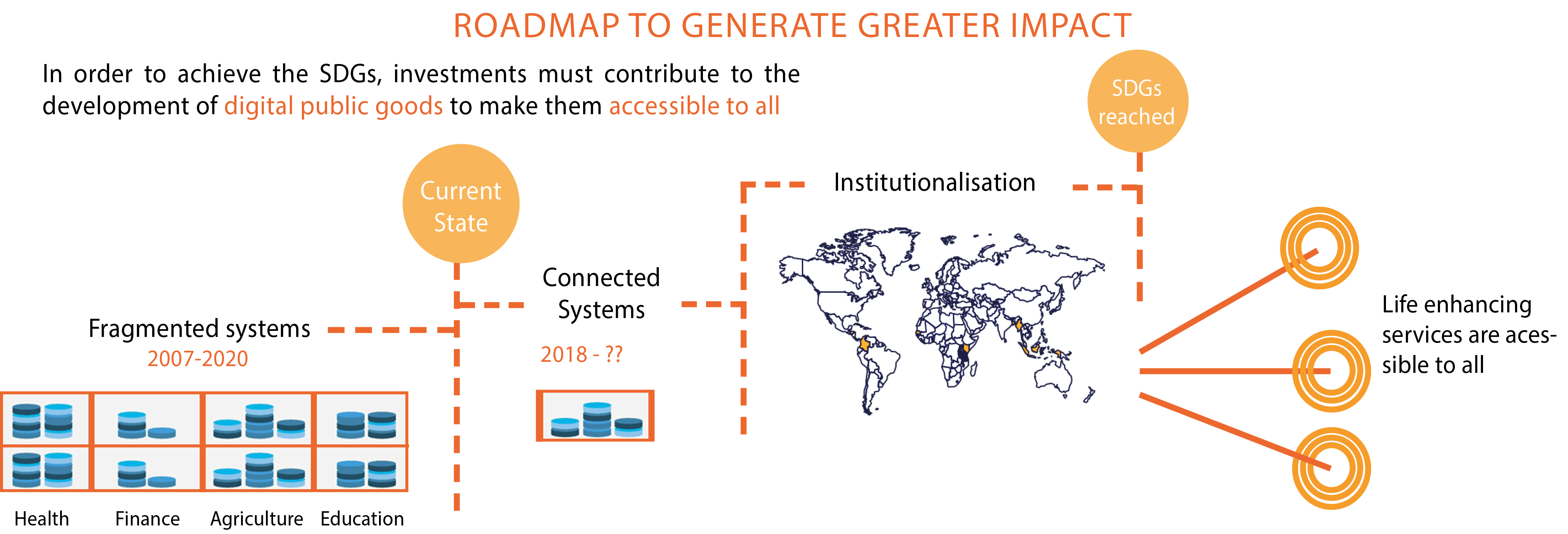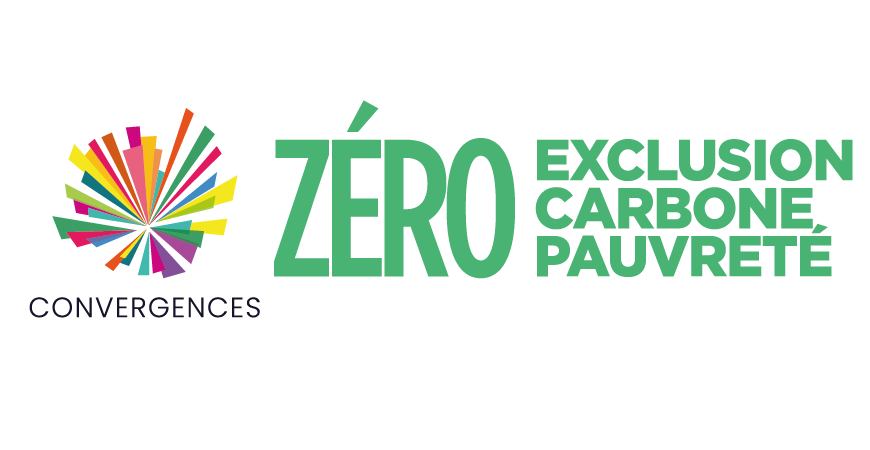![]() When reflecting on the last decade, the change has been staggering – much of it because of the advent of digital technologies which are now at a tipping point.
When reflecting on the last decade, the change has been staggering – much of it because of the advent of digital technologies which are now at a tipping point.
Once a novelty, new technologies are now being implemented at a national scale to deliver better services to citizens. Countries, development actors (e.g., NGOs, donors) and the private sector use now digital technology as a key lever to achieve the Sustainable Development Goals (SDGs). Long sidelined in development discussions as an issue relevant only to IT specialists, digital technology is now central to many SDG discussions1.
Technologies put to the test
Countries are now seeing concrete results from embracing this digital technology. In South Africa, mobile messaging that provides essential information to new or expectant mothers has now scaled to cover 95% of the market. In India, Aadhaar, a national system that uses biometric and geographic data to generate a unique ID (an essential aspect for social, economic, and political inclusion), has registered 1.21 billion subscribers and achieved an estimated $13 billion2 in reduced transaction overhead. Rwanda is in year four of its Vision 2020 strategy to modernize to a cashless economy, which the government plans to achieve through ubiquitous phone penetration and high-speed internet access3. Senegal aims to generating 10% of its GDP from the digital economy by 2025, while Kenya, a pioneer in mobile money, is now actively exporting its model to other countries4.
Multilaterals donor consortiums are focusing on digital technology too. The World Bank’s ID4D program is working to scale national identification platforms while tackling data privacy issues at the same time. Financial services companies, government regulators and others are using open source software like Mojaloop to take on the challenges of interoperability of financial systems to deepen financial inclusion and are looking to pool their investments in fewer, larger digital platforms. An example of this pooled investment is the 2018 launch of the Principles of Donor Alignment for Digital Health which align donor investments in digital systems at country and regional level to reduce system fragmentation5.

Creating Digital Public Goods
Despite the progress we are seeing, there is still much work to be done to evolve from a world of sectoral digital building blocks to a connected system that leads to the routine use of digital technology. In the end, the goal should be to recognize such a system as a collective set of “digital public goods” to be shared by all for the benefit of everyone.
Digital public goods are appropriate digital platforms and service products, pricing and procurement mechanisms, training programs for people and supportive digital policy that protects private citizens. The Digital Impact Alliance for instance develops open source digital public goods that anyone can take and adapt (open-source). If carefully designed based on the four Ps – products, pricing, policy and people programs – these goods can be adapted to move from fragmented digital investments which do not operate at scale to digital platforms and services that run national government infrastructure with services that can reach anyone.
If the SDGs are to be met by 2030, it will require a global cross-sector commitment to collaborate on investing in digital public goods such as reusable digital platforms and data algorithms; negotiated pricing and pooled procurement mechanisms; increased digital capabilities at the citizen and governmental level and a sincere focus on a responsible regulatory regime that protects citizens’ rights, investments in peoples digital capabilities and stronger policy advocacy are required. Moving on these issues can move digital technology from novelty to an institutional lever to achieve the SDGs.
- WorldBank and the UN have committed to major investment programs over the past two years focused on digital investment.
- https://www.foreignaffairs.com/articles/asia/2018-08-13/data-people
- Lessons from Rwanda: Harnessing public-private partnerships to drive payment digitization, United Nations Capital Development Fun, Better than Cash Alliance, by Oswell Kahonde and Juan Blanco, June 29, 2018, https://www.betterthancash.org/news/blogs-stories/lessons-from-rwanda-harnessing-public-private-partnerships-to-drive-person-to-government-payment-digitization
- https://www.economist.com/the-economist-explains/2015/03/02/why-does-kenya-lead-the-world-in-mobile-money
- http://digitalinvestmentprinciples.org/
KATE WILSON
CEO
DIGITAL IMPACT ALLIANCE

